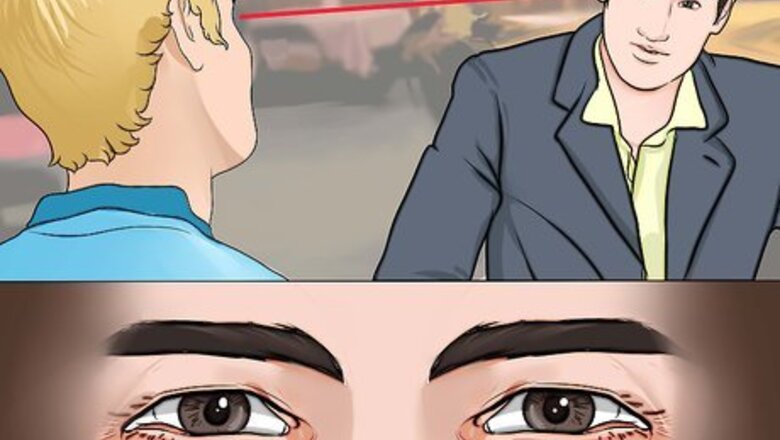
views
Checking for Physical Signs
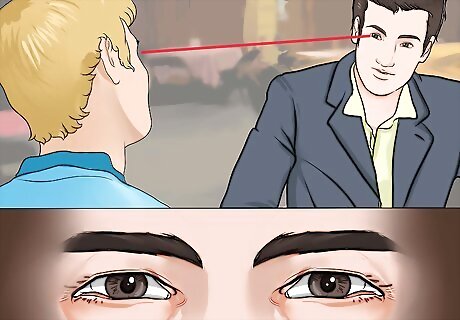
Look into the person's eyes. Smoking a drug can cause red or watery eyes. Pupils that are constricted or dilated can be a sign of narcotics, stimulants, or club drugs. Check for rapid or unnecessary eye movements. Involuntary eye movements, or nystagmus, are symptomatic of many kinds of drug use. If someone is wearing sunglasses inside or in the shade, they might be trying to hide red or otherwise affected eyes. Someone who is high on painkillers may have trouble keeping their eyes open.
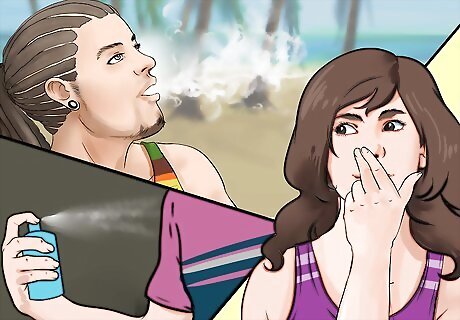
Smell the person. Someone who has smoked marijuana might smell sweet, smoky, or skunky. A chemical or metallic smell might mean they inhaled a toxic household product, such as glue or paint thinner. A smell of incense, air freshener, or powerful perfume or cologne might be intended to cover up the smell of a drug that has been smoked.
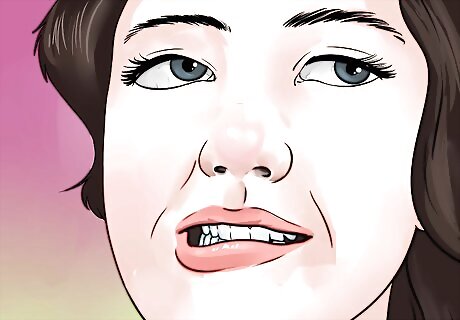
Observe the person's mouth. Listen to his swallowing and observe the way it moves. Salivation and lip smacking can be signs of dry mouth, a sign of drug use. Licking of the lips, frequent clenching of the teeth or twisting of the jaw might mean that someone is high on club drugs.
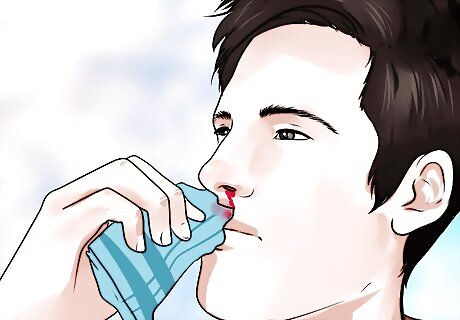
Observe the person's nose. A bloody nose with no other apparent cause can mean that someone has snorted a drug, such as cocaine, meth, or a narcotic. A runny or congested nose can have many causes but combined with other symptoms it could signify that someone is high. Frequent rubbing of the nose can also be a sign. Someone who has snorted a drug might have powder on her nostrils or upper lip.
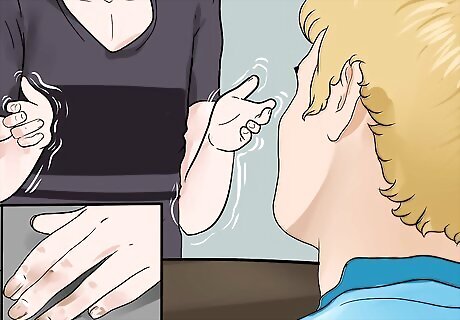
Observe the person's hands. Shaking hands can be a sign of club drugs, inhalants, or hallucinogens. Palm sweat can be a sign of intoxication. Burned fingertips can be a sign that crack cocaine was smoked.
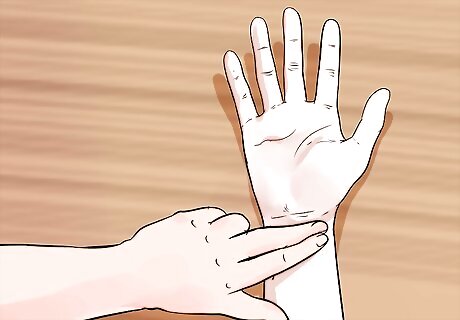
Check the person's vital signs. Pulse, rate of respiration, temperature, and blood pressure can all be affected by drug use. If you feel safe touching the person in question, take his pulse and check his temperature. Cold, sweaty skin is one sign of drug use. An increase or decrease in blood pressure, an increased heart rate, or slowed breathing can all be signs of drug use. Some drugs can cause chest pain, and even heart attacks. Seek medical help for someone who seems to be experiencing pain in his chest.
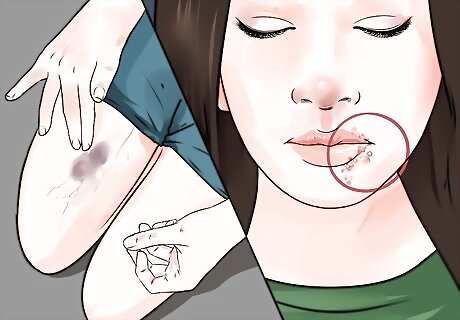
Check for signs of habitual drug use. People who use drugs such as methamphetamine, bath salts, or heroin often inject their drugs, which leaves track marks. Check for darkened veins, lesions, and bruising around the veins. Lesions that are open and in the process of healing can be signs of recent drug use. Sores or a rash on the mouth or nose can also be a sign of habitual drug use.
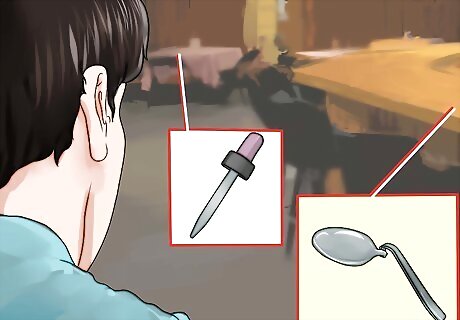
Check for drug paraphernalia. While pipes, rolling papers, syringes and rubber tubing might be easily recognised as drug paraphernalia, the unwarranted presence of household objects can also indicate recent drug use. Bent spoons, eye droppers, and cotton balls may be indicative of narcotic use. Razors, handheld mirrors, and tiny spoons might indicate the use of stimulants. Pacifiers, candy necklaces, and lollipops may be used by people on club drugs, such as Ecstasy, that cause the jaw to clench.
Checking for Behavioral Signs
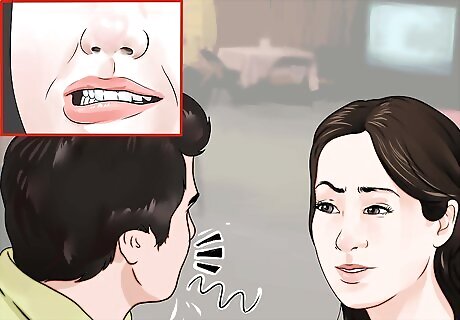
Listen to the person's speech. Someone who is high may speak too much or too quickly, or may have problems speaking. Someone who slurs words but does not smell like alcohol might be high. If the person you are speaking with appears to have difficulty concentrating or following the conversation, or if her thinking is unusually paranoid, deluded, or panicked, she might be high.
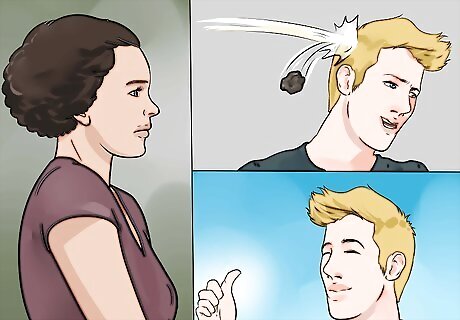
Observe the person's movements. A high person might react slowly, or might be nonreactive to surrounding people and things. If someone appears not to experience pain, he might be high. Physical coordination that seems to be rapidly deteriorating is a sign of drug use. Someone moving as if he is drunk, but without the smell of alcohol, is possibly high. A drunk person who seems to be unusually impaired might also have taken drugs or have been drugged.
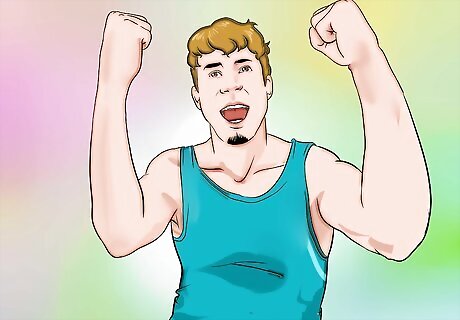
Note unusual or shifting energy. Depending on the drug, a high person might be euphoric, relaxed, anxious and agitated, exhilarated, overconfident, or aggressive. Look for an unusual intensity of mood, or a quickly changing mood. If you know someone well, and she is behaving in an uncharacteristic way, that could be a sign of drug use. Sleeplessness and restlessness can be signs that someone is high, as can drowsiness. If you cannot rouse a "sleepy" person, she might have passed out and need medical attention.

Keep an eye out for unusual actions. If you know someone well, you can tell if he is exhibiting unusually high sociability, lack of inhibition, poor judgment, or an increased or decreased appetite or sex drive. Inappropriate laughter and intense snacking are common signs of marijuana use. Someone high on a harder drug might hallucinate, seeing or sensing things that are not there. Delirious, psychotic, or violent behavior all might be caused by drug use. Some drugged people appear to have undergone a total personality change.

















Comments
0 comment